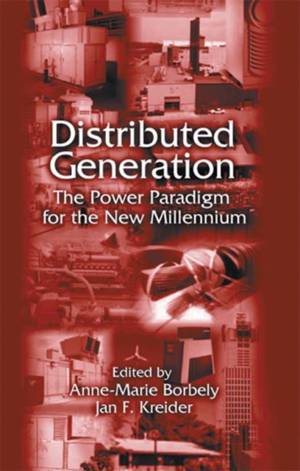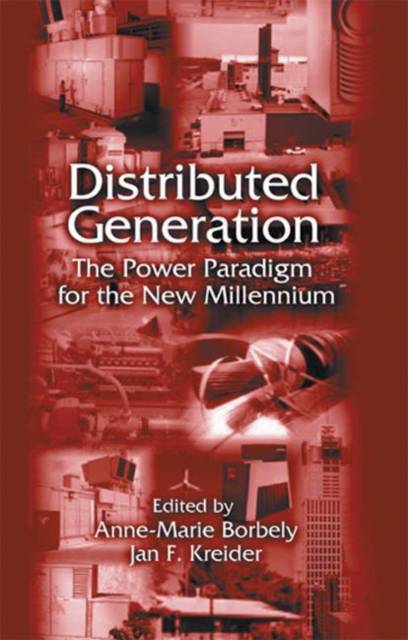
Door een staking bij bpost kan je online bestelling op dit moment iets langer onderweg zijn dan voorzien. Dringend iets nodig? Onze winkels ontvangen jou met open armen!
- Afhalen na 1 uur in een winkel met voorraad
- Gratis thuislevering in België vanaf € 30
- Ruim aanbod met 7 miljoen producten
Door een staking bij bpost kan je online bestelling op dit moment iets langer onderweg zijn dan voorzien. Dringend iets nodig? Onze winkels ontvangen jou met open armen!
- Afhalen na 1 uur in een winkel met voorraad
- Gratis thuislevering in België vanaf € 30
- Ruim aanbod met 7 miljoen producten
Zoeken
Distributed Generation
The Power Paradigm for the New Millennium
€ 351,45
+ 702 punten
Omschrijving
As a result of deregulation, the US electric utility industry is undergoing a dramatic transformation with far-reaching technical and social consequences. At the heart of this transformation lies Distributed Generation (DG)-the substitution of centralized electricity production with smaller-scale technologies located in or near facilities and powered by natural gas or renewable resources. The Electric Power Research Institute estimates that 20 percent of all new power generation will use distributed, not centralized technologies. Distributed Generation: The Power Paradigm for the New Millennium is the first step to understanding the myriad issues that surround the newest, most significant trend in power production since the steam turbine. Chapters contributed by the top experts in their fields address virtually every aspect of this energy "revolution," from its associated technologies to the regulatory environment and from choosing the right DG system for a given purpose to the novel financial and economic opportunities this paradigm shift presents. This book gives engineers and energy business developers their first opportunity to explore and gain a broad understanding of the new energy landscape. With its detailed discussion of the near-term technologies that will see application in the next few years, Distributed Generation: The Power Paradigm for the New Millennium will undoubtedly become the industry's standard reference.
Specificaties
Betrokkenen
- Uitgeverij:
Inhoud
- Aantal bladzijden:
- 416
- Taal:
- Engels
- Reeks:
Eigenschappen
- Productcode (EAN):
- 9780849300745
- Verschijningsdatum:
- 27/06/2001
- Uitvoering:
- Hardcover
- Formaat:
- Genaaid
- Afmetingen:
- 164 mm x 242 mm
- Gewicht:
- 766 g

Alleen bij Standaard Boekhandel
+ 702 punten op je klantenkaart van Standaard Boekhandel
Beoordelingen
We publiceren alleen reviews die voldoen aan de voorwaarden voor reviews. Bekijk onze voorwaarden voor reviews.










